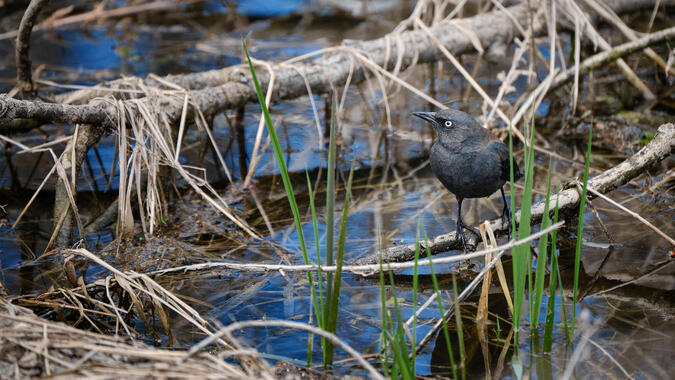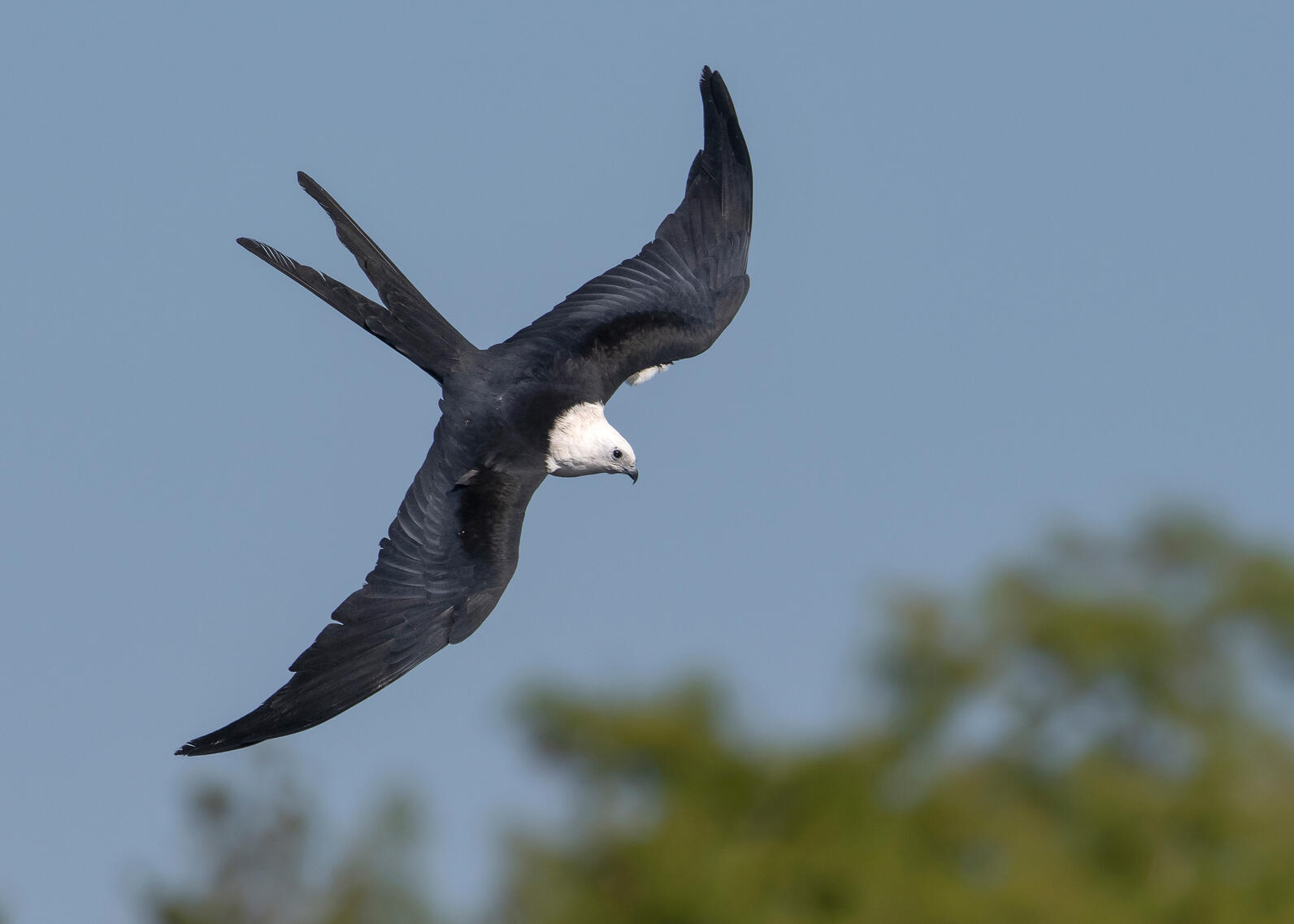The threats facing a trio of bird species are highlighted in a new proposal from the N.C. Wildlife Resources Commission. Black Skimmers, Rusty Blackbirds, and Swallow-tailed Kites would see their official endangered/threatened listing status elevated, if the commission approves the proposal next month.
Audubon strongly supports the changes, which would bring more attention to each species and require the state to elevate conservation programs for each. You can help by adding your name to our comments supporting the proposal before May 21.
Each bird faces different threats and depends on different habitat, from barrier island beaches to wetlands. The common thread is that they all need protection in North Carolina.
The state has three listing classifications:
- Endangered: a species whose continued existence in North Carolina is in jeopardy.
- Threatened: a species that is likely to become endangered in the foreseeable future.
- Special concern: species that requires monitoring.
When a species is listed, the state adopts a conservation program to protect it. Read on for a breakdown of the most recent proposal.
Black Skimmer: From “Special Concern” to “Threatened”
The large, orange-and-black bill of the skimmer makes it easily identifiable on North Carolina’s coast, where this specialized species nests directly on the beach and skims the surface of calm waters in search of food. Audubon’s staff works to study and protect skimmers across their range in North Carolina, posting and monitoring nesting colonies and tracking their movements. Still, skimmers are in trouble. North Carolina populations have decreased by half since 1999.
The species faces similar declines in other East Coast states, including South Carolina and Virginia. Because skimmers nest directly on the open sand of our beaches—the same places that humans like to visit—they are especially vulnerable to disturbance and loss of nesting sites.
The state is proposing to elevate the skimmer’s listing from species of special concern to threatened, which will help elevate and focus conservation efforts for skimmers.
Rusty Blackbird: From Not Listed to “Special Concern”

If you’ve ever visited a wetland or damp forest in winter and heard the sounds of a hundred creaky door hinges, you are likely experiencing a roving flock of Rusty Blackbirds, a unique blackbird known for its orangish-brown non-breeding plumage. Once widespread, Rusty Blackbirds are in steep decline, due in part to the loss of wintering range in places like North Carolina.
Using data from the Audubon Christmas Bird Count, state biologists reported a 60 percent decline in detections over a 14-year period in our state. This is part of long-standing and steep population losses across its range, estimated at more than 5 percent population loss per year.
In the past, the Wildlife Resources Commission has focused its listing efforts on species that breed in the state. Rusty Blackbirds breed in the boreal forest of Canada and winter in North Carolina and other eastern states. By proposing to list the Rusty Blackbird as a species of special concern, the state is taking the important step of acknowledging that wintering habitat is vital to the bird’s survival.
Swallow-tailed Kite: From Not Listed to “Special Concern”

Only a handful of Swallow-tailed Kites nest in North Carolina, drifting over coastal rivers and bottomland forest like flying origami. Because these elegant birds have consistently bred in North Carolina for a decade, the state is considering it a native species to the state for the first time. Swallow-tailed Kites populations have been increasing in recent years, but it has still lost much of its historic range. At one time, Swallow-tailed Kites bred in as many as 21 states, but now are confined to just eight, including North Carolina. The state’s proposal is to list Swallow-tailed Kites as species of special concern.







